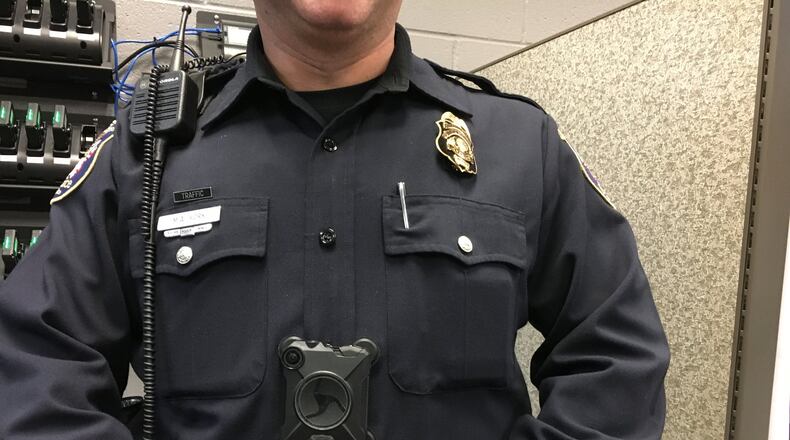RELATED: Sweeping police reforms pitched in new Ohio legislation
“It is time to get these things done. There is no reason why these issues should not be dealt with,” DeWine said, adding that he hopes the Ohio General Assembly will immediately begin hearings on the issues.
The Ohio House left for summer break and the Ohio Senate has just a handful of session days scheduled in July and August.
DeWine said he is asking lawmakers to take action on the following:
• Funding for six hours of ongoing professional training each year for Ohio’s 32,000 certified police officers in 850 agencies.
• Creating a standard definition of use of force and mandated reporting to the state.
• Banning choke holds unless the officer is acting in self-defense or defense of another.
• Requiring independent investigations for officer-involved shooting and serious incidents.
• Requiring independent prosecution for officer-involved shootings, serious physical harm and deaths in custody.
• Creating a law enforcement accountability board to determine professional standards and discipline.
RELATED: DeWine says defunding police ‘absurd’ but reforms are needed
The accountability and oversight board, which would be part of the Ohio Peace Officers Training Academy under Yost, would have the power to suspend or revoke an officer’s certificate as a means of disciplining on-the-job misbehavior. Currently in Ohio, a law enforcement officer’s certificate may only be revoked if he or she is convicted of a felony.
DeWine said he directed the Ohio State Highway Patrol to outfit all troopers with body cameras and cease investigating trooper-involved shootings — instead having an independent party do so.
The governor said he doesn’t have a price tag for the reforms, though he argued some items won’t cost much, such as mandatory reporting and creating a licensing system.
Ohio House Minority Leader Emilia Sykes, D-Akron, blasted DeWine for failing to consult the Ohio Legislative Black Caucus until just hours before he unveiled the package of ideas.
“These are not the recommendations of black lawmakers — far from it. What we want is to uplift the voices of black Ohioans who we have heard from at protests, community meetings and in everyday interactions. Statehouse Republicans, from the governor to the speaker, don’t seem interested in truly listening to black Ohioans. They think they have the answers to hundreds of years of racism, brutality and oppression. They do not,” Sykes said in a written statement.
Sykes noted that policing is just one aspect of the reforms protesters are demanding. Democrats in the General Assembly are pushing for resolutions declaring racism a public health crisis.
When asked if he supports such a resolution, DeWine promised to take a look at it and provide a response soon.
In a separate news conference, Dayton Mayor Nan Whaley and the Ohio Mayors Alliance, a coalition of the 30 largest cities in the state, said it will form a police reform support network to help cities share research, analysis and best practices.
The cities will work with the Ohio Department of Public Safety’s office of criminal justice services to coordinate state and local efforts.
“We all know and recognize that we have work to do inside our police departments and inside our cities,” Whaley said. She added, “We are at a really pivotal, amazing opportunity in our country and in our communities. We are witnessing generational change. That opportunity is to make our cities more just. I think mayors across Ohio want to grab that opportunity and get as much change done as we possibly can in these coming months.”
RELATED: What has happened to policing in Ohio since John Crawford III’s death 5 years ago?
Five years ago in the wake of the police shooting death of Fairfield resident John Crawford III at a Walmart in Beavercreek, DeWine and then-Gov. John Kasich came up with recommended protocols on hiring, training and operating as police officers. Ohio boosted its criteria for hiring and increased basic training hours to 737, up from 650. And as of last year 68% of Ohio’s law enforcement agencies had embraced the recommended best practices on the use of deadly force and other issues.
But recommendations to increase annual professional training for officers to 40 hours was never realized. Ohio increased ongoing training to 20 hours but since state funding evaporated three years ago the training has been dropped.
DeWine on Wednesday asked lawmakers to find a funding source to provide six hours of ongoing professional training each year for current officers. DeWine and Yost also said they believe the basic training hours should be further increased for police cadets.
About the Author

